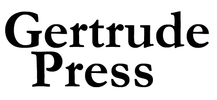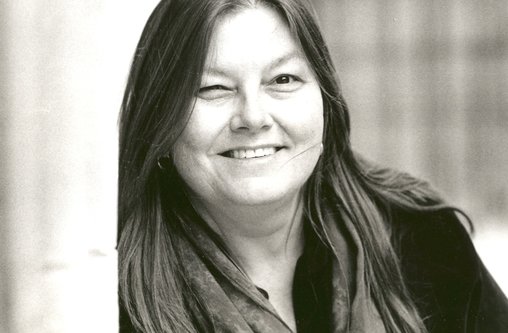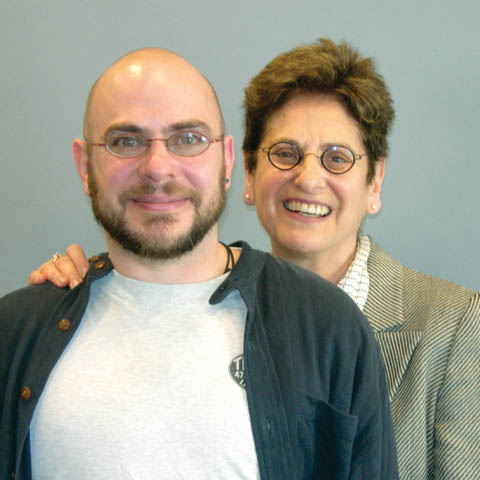|
“Performance & Purpose” Issue 20 Fiction Editor Tammy Lynne Stoner sat down with the amazing Dorothy Allison at the Tin House writer's conference to talk with her writing, performance, and life. Here are some highlights from their conversation: Gertrude: What kind of storytelling or performance would you say you do? Dorothy Allison: Well, there are performance poets and there are performance artists, who tend to be more confrontive – like Karen Finley – physically acting out on stage. There’s much more emphasis on physical action for performance artists than for performance poets. Performance narrative – which is closer to what I think I do – is a kind of live story telling that really uses voice in strong, structured ways. . . Two or Three Things I Know for Sure was originally written as a performance, and it was written in conjunction with the photographs I got when my mother died. It was done in a theater that was half-round, so on the rounds we did slides – mostly snapshots that my mother had collected over her lifetime, beginning with pictures of her when she was eleven and twelve years old. There was a picture of her taken when I knew she was pregnant with me but you can’t tell and then all these photographs of me as this radical, young, lesbian feminist marching in the street, us with a van we took around the south that said ‘Free Joan Little’ – all these great photographs. I constructed the whole of Two or Three Things I Know for Sure around those photographs. . . In the performance we would flash the photographs. I did the various text and we had musical accompaniment. The first performance at Camera Works was about 65 minutes, but the audience wouldn’t leave and they stayed for two hours. We had to talk. It was like we had to talk – we had to process. . . This, for me, is political art, and part of the politics of the art action is that you have to be present afterwards. You don’t get to run away. It’s not about being exhausted or being drained; it’s about someone telling you something so essential that it becomes a part of the art – it becomes a part of your life. . . Making a living is one thing, making art is another thing, and changing the world is a third thing. What Becomes You
Issue 14 An interview by Tammy Lynne Stoner with Aaron Link Raz on his book What Becomes You, which has been nominated for a Lambda Literary Award for Best Memoir. Gertrude: What Becomes You is a book written from two sides of a FTM gender transition. One point of view was written by you, the person transitioning. The other was written by your mother, Hilda Raz[1]. Was Hilda there from the beginning of the writing process? Aaron: She was always there. I felt it was very important because the book is really about the flexible nature of reality – how what you see depends on who you are and where you are standing… Ultimately, the book is about change – which is life. As Hilda says, ‘The book is for anyone who has a child or was a child.’ Gertrude: You’ve been a guest artist and/or teacher at 30 colleges and universities. Is What Becomes You being taught as part of any university curriculum? Aaron: Yes. One of the great rewards has been receiving emails letting us know that our book is being taught. Being taught in sociology classes, journalism classes, graduate creative writing courses, psychology classes, anthropology seminars – the whole range of humanities. I even had an email from a teaching nurse who put the book in a scientific database so that students could have access. Gertrude: That’s amazing! Now, tell me about your next book Display. Aaron: Display comes from the intersection of my writing, theater, and museum work… My degree is in the History of the Philosophy of Science, so part of me will always be a historian. I am very interested in how people do things and the recurrence of stories. I’m intrigued by how we choose to represent ourselves to the world – and what are the consequences of those choices. It is a theatrical issue. It also a social and scientific issue. In Display, I’m talking to people in many communities – from the curators of the museum of sex in New York to people in internet communities – about how we all choose to display ourselves in the world because really, that is the way we communicate. How I make myself known to you and how you make yourself known to me. The human process. The human comedy. Gertrude: Who is one of your greatest inspirations? Aaron: One of my inspirations is someone who wrote another medical memoir – Floyd Skloot. His book In the Shadow of Memory begs the questions: Is it a science book or a memoir? I was in a similar position, being both the subject and object of my work, so Floyd’s work both inspired and informed mine. Floyd was also kind enough to lend us his house for two weeks to finish the manuscript. I feel very lucky to have had his help and his influence. Gertrude: What Becomes You has received great reviews. In May 2008, Publisher’s Weekly called your book “one of the hottest memoirs in the [LGBT] category.” Now that you have gotten good reception, what is your vision for the future of What Becomes You, if there is one? Aaron: I believe every work of art has its own life. My hope is simply that my work will reach the people to whom it speaks… One of the many things I learned from working in the theater is that you can visualize your audience however you choose. In my experience, if you view your audience as a group of friends who want to be informed, enlightened, and moved, you will receive that. And I have. Gertrude: Would you like to see the book made into a film? Aaron: Would I like it to be a major Hollywood movie? I would like the money [laughs] – but if wouldn’t be the story Hilda and I wrote. I doubt Hollywood would be interested anyway, but who knows. In the beginning of our writing process many people told us that no one would be interested in our subject matter. Yet now we are being taught in universities. Here I am being interviewed. And What Becomes You has just been designated a Bison Book by our publisher, the University of Nebraska Press. This means it will never go out of print. Gertrude: That’s fabulous! Aaron: Yes! And each paperback version comes with a study guide that Hilda and I wrote so teachers know it will always be available and ready for them to teach. Beyond that, I know that even after I’m gone people can still pick up What Becomes You and if they are the reader for this book, it will be there for them. [1] Hilda Raz is a poet and editor of Prairie Schooner. |
Categories |



 RSS Feed
RSS Feed